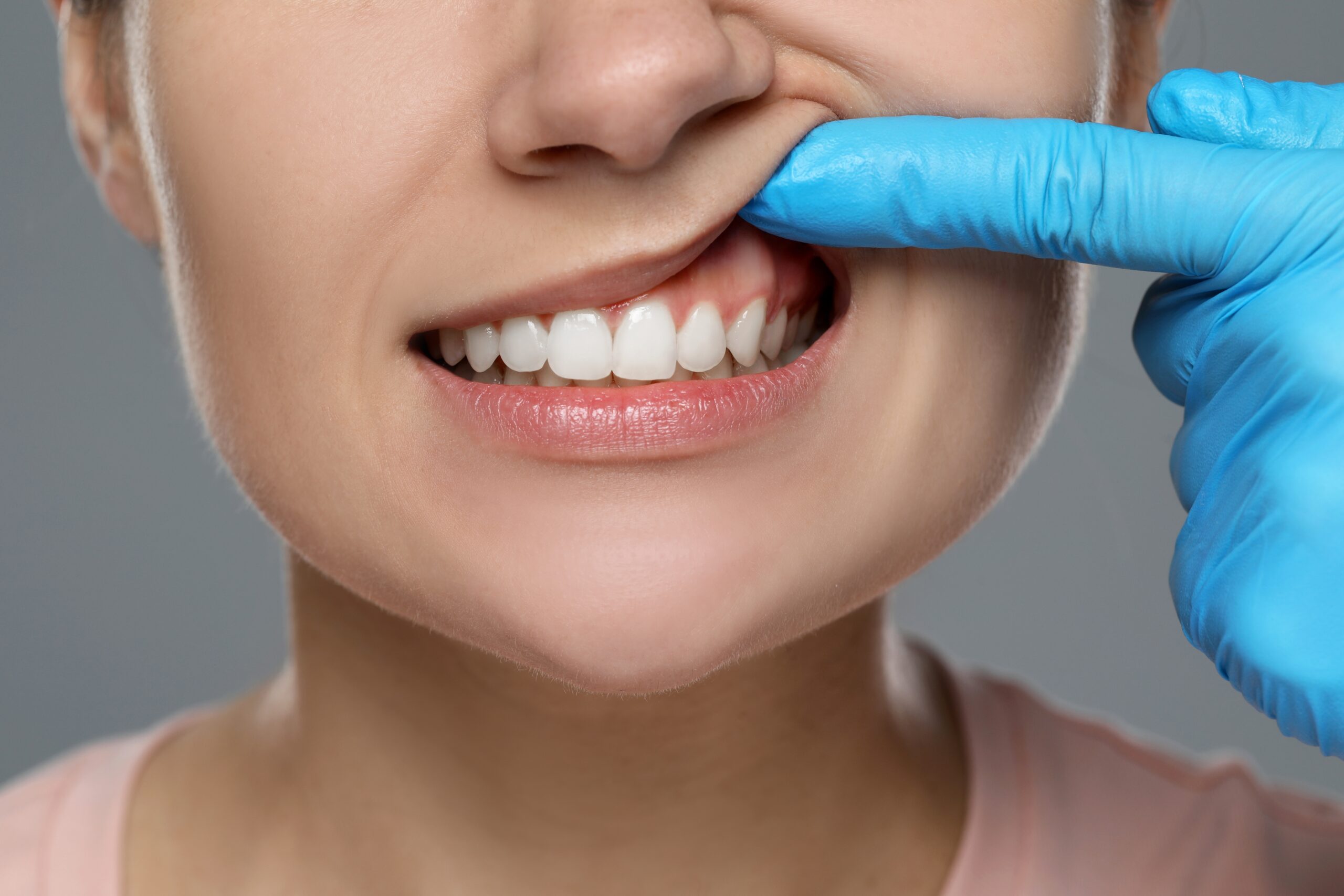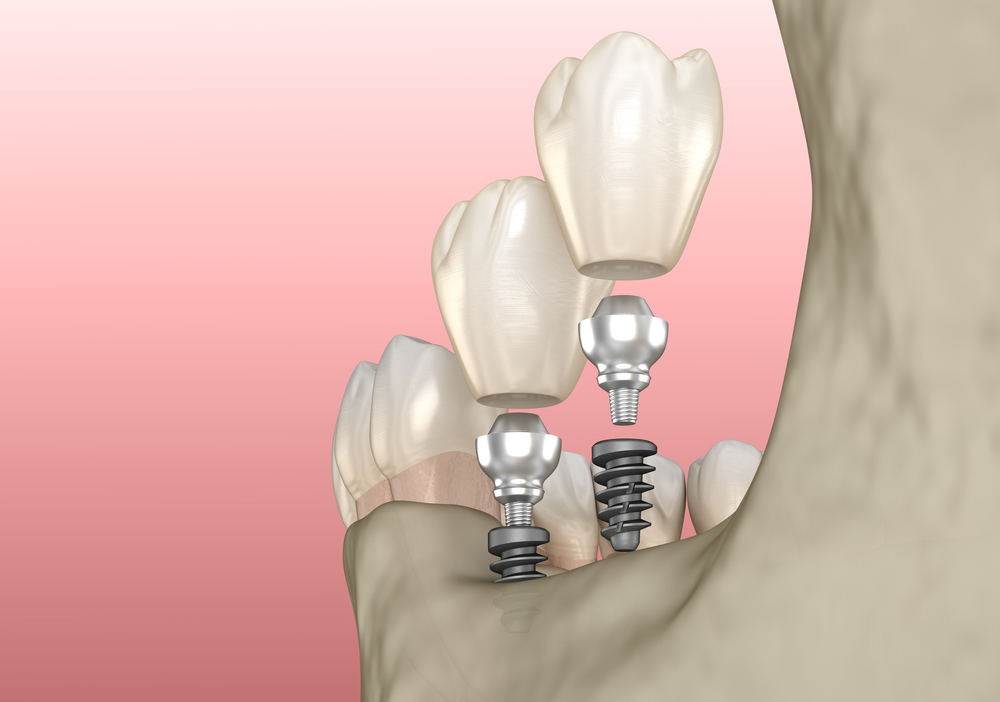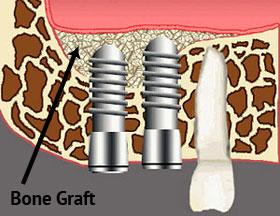Problems with Dental Implants
If you’ve had previous dental implants and are having problems with them, come see our dental experts today and get your issues skillfully diagnosed.
The Success of Dental Implants
Dental implants are highly regarded as the leading choice for tooth replacement, mimicking the structure of natural teeth. With a success rate of around 95% over the long term, they have become a popular solution for individuals looking to restore their smiles. However, like any surgical procedure, there are risks and potential complications associated with dental implants that patients should be aware of.
While complications are relatively uncommon, it is essential to be informed and prepared. Should you notice anything unusual during your treatment or recovery, we encourage you to contact our Bradenton/Sarasota dental office immediately.
Call to request an appointment: Sarasota/Lakewood Ranch 941-201-3055 • Bradenton 941-209-5052 • Sun City Center 813-331-5845, or click here to request an appointment online.
Signs of Dental Implant Problems
The following are signs that your implant has developed complications and that a full examination is needed:
- The gums around the implant are red or a bluish-purple color (evidence of inflammation)
- The gums are swollen around the implant
- The area around the implant is sensitive or painful
- The gums around the implant bleed at the gumline when brushing
- Pus is coming from the gums or the implant site
- The threads of the implant post are visible
- The implant is loose
Dental Implant Complications
Potential complications that can arise after receiving dental implants, possibly leading to dental implant failure, include:
Loosening of the Implant
Implants placed in the wrong position or where there is inadequate bone support can become unstable. Average biting forces on an inadequately supported implant can cause the implant to become loose or even fall out.
There are also rare instances where the implant is placed in the proper position but the surrounding bone fails to integrate (fuse) with the implant surfaces. This leaves the implant improperly supported. Over time, the implant may become loose or shift, leading to discomfort or aesthetic concerns. Unstable implants are also more prone to infection.
Peri-implantitis

Peri-implantitis can be caused by a number of factors, including poor oral hygiene, smoking, major health conditions such as diabetes, or dental cement from the implant crown leaking into the tissues. It can also more rarely be the result of bite misalignment putting excessive pressure on the implant and destabilizing it.
Implant Fractures
Just like natural teeth, dental implants are not immune to damage; they can break or fracture if subjected to excessive force or trauma. This can occur due to various factors, such as biting down on hard objects, experiencing an injury to the jaw, or other forms of undue pressure. It’s essential to understand that while implants are designed to be durable and resilient, maintaining proper care and avoiding situations that could lead to overloading is crucial for their longevity and overall functionality.
Premature Dental Restoration Placement
Sometimes crowns, bridges, or dentures are loaded onto the implants immediately after the implants are placed. This is fine if the implant is stable enough to support the load. But if the restoration is placed before the implant can easily manage the added pressure, the implant can become destabilized or even fail.
Nerve or Tissue Damage
During the implant placement, there is a possibility of nerve or surrounding tissue damage. Consequences may include:
- Nerve damage: Results in pain, numbness, or tingling in areas like the lips, tongue, or chin.
- Tissue damage: Can cause inflammation, bleeding, or infection.
Such complications typically arise from improper implant placement or underlying health issues.
Sinus Problems
For implants placed in the upper jaw, there is a risk that the implant can protrude into the sinus cavity, causing sinus-related issues like infections or sinusitis. This complication often occurs when there is inadequate bone to anchor the implant properly. Receiving a sinus lift before the dental implant procedure can prevent this.
Allergic Reaction
Although rare, some individuals may experience an allergic reaction to materials used in dental implants, typically titanium or other metals. Symptoms can range from rashes and itching to severe reactions requiring medical intervention.
Risk Factors
Several factors can increase the likelihood of complications during or after dental implant surgery:
Poor Oral Health: Pre-existing issues like gum disease or tooth decay can escalate risks.
- Insufficient Bone Density: A lack of adequate bone can impair implant success.
- Smoking: Tobacco use negatively impacts healing and increases failure risks.
- Medical Conditions: Conditions such as diabetes, autoimmune disorders, or cancer may heighten complication risks during the procedure.
- Medications: Certain drugs, particularly blood thinners, can increase the likelihood of bleeding during surgery.
- Age: Older adults may face higher complication risks due to natural changes in bone density and healing.
Reducing Your Risk of Complications
To minimize the risk associated with dental implant surgery, consider the following strategies:
- Choose an Experienced Dentist: Select a qualified dentist with a strong track record in implant dentistry to ensure the best surgical outcomes.
- Maintain Oral Hygiene: Regular brushing and flossing of both natural teeth and implants is crucial. Schedule routine dental cleanings and checkups to monitor your oral health.
- Follow Post-Surgery Instructions: Adhere to your dentist’s guidelines for care following the procedure to promote proper healing.
- Avoid Smoking and Excessive Alcohol: These habits can impede recovery and increase the risk of complications.
$79 New Patient Special Offer
If you are experiencing any of the signs of dental implant complications or Peri-Implantitis, take advantage of our New Patient Special Offer and come in to see Drs. Ryan, Tyler, or Thomas Rubino as soon as possible for a comprehensive oral exam and consultation.
Exam, X-rays & Consultation
If you are experiencing any of the signs of dental implant complications or Peri-Implantitis, take advantage of our New Patient Special Offer and come in to see Drs. Ryan, Tyler, or Thomas Rubino as soon as possible for a comprehensive oral exam and consultation. He They will thoroughly investigate the problem, determine its cause and explain in detail what can be done to correct it. He will thoroughly answer any of your questions so you are comfortable and can make a well-informed decision. Your visit will include:
- Panoramic Digital X-rays (as needed)
- CT scan (as needed)
- Periodontal probing and charting
- Comprehensive oral exam
- Oral cancer screening
- Consultation with the doctor
- Discuss your treatment options (during free 2nd appointment)
- Get all your questions answered
Usual value: $529
Important Notice:
The patient and any other person responsible for payment has a right to refuse to pay, cancel payment, or be reimbursed for any other service, examination, or treatment that is performed as a result of and within 72 hours of responding to the advertisement for the free, discounted fee, or reduced fee service, examination, or treatment.
Frequently Asked Questions
What can I do if I experience complications or problems with my dental implant?
If you encounter any issues with your dental implant, contact your dentist’s office immediately. Do not try to handle these issues on your own. Your dental team can assess the situation and determine whether further treatment is necessary.
How can I reduce the risk of infection after the implant procedure?
To lower your risk of infection, maintain excellent oral hygiene, follow all post-operative care instructions, and avoid smoking and excessive alcohol use. Taking care of any early periodontal infection like gingivitis before receiving implants can lower infection risk.
Can my body reject a dental implant?
Though rare, it is possible for the body to reject a dental implant. Most implants are made of biocompatible materials, making rejection uncommon. Implant rejection usually occurs before the implant has fully healed. This is why it’s important to wait for osseointegration to place the final prosthetic.
Can anyone get a dental implant?
Most individuals are candidates for dental implants as long as they have good oral health and sufficient bone density. Supplemental procedures can help prepare the surrounding structure for dental implants. Certain medical conditions or medications might affect eligibility, so it’s best to consult with our dentist.
Achieve Your Best Smile With Dental Implants
While some risks and complications accompany dental implants, they are generally rare. With a high success rate, the majority of patients enjoy beautiful smiles and improved oral health with dental implants. For more information about dental implants or to address any concerns you might have, contact Rubino Periodontics and Implant Dentistry today. Our dedicated team is here to help you navigate your dental journey with confidence!
Call to request an appointment: Sarasota/



 Poor Oral Health
Poor Oral Health